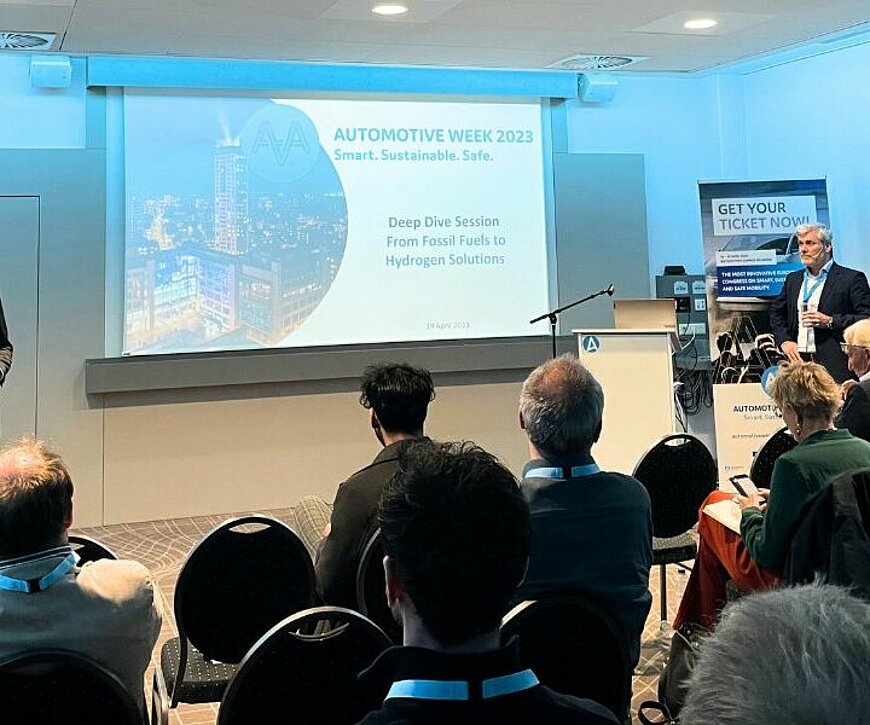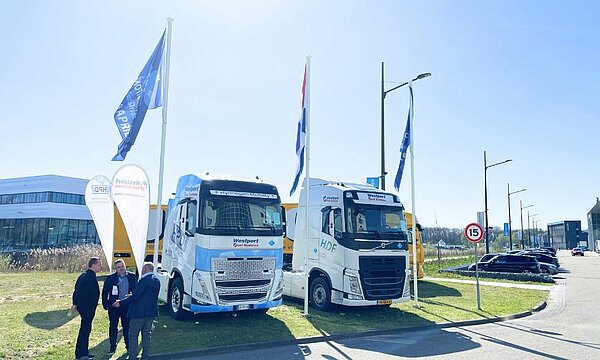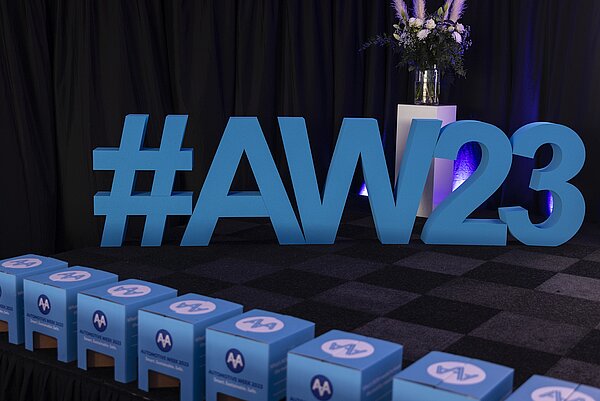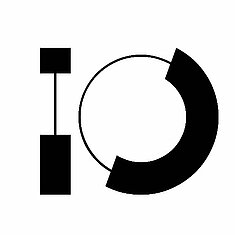Hydrogen transport is lagging behind – these companies want to speed up the transition

The last deep dive session of Automotive Week 2023 focused on the transition to hydrogen solutions, showcasing the experiences of three companies working to make this transition happen.
The panelists:
Bas ten Broeke (Technology Director, Westport Fuel Systems)
Ted Straten (Vice President Strategy & New Business, Bosal)
Ramon Jeuring (Lead Engineer Hydrogen, Resato Technology)
Shall the infrastructure come first? But what is the utility of having it if there are no vehicles to use it? That’s the chicken and egg dilemma hanging on hydrogen transport. Although many contend it will be the future, hydrogen still struggles to gain momentum.
In recognizing hydrogen’s dilemma and urging for regulation, the last deep dive session held during Automotive Week 2023 at the Automotive Campus Helmond brought different examples of companies working to ease the transition toward hydrogen mobility. The topics discussed included refilling stations, retrofitting trucks with hydrogen technology, and fuel cell solutions.
Hydrogen refilling systems
The first company to present was Resato, which makes hydrogen refueling solutions (HRS). Jendrik van Dijk, project manager at the company, introduces the different solutions his company offers, which accommodate both light and heavy-duty vehicles. The Assen-based firm installed 27 refilling stations all over Europe. Yet, such an expansion depends on grants Resato customers can access if they decide to build a hydrogen refilling facility.
‘’For example, in Sweden, there has been a grant that would cover all costs involved in setting up new filling points, which led to an increase of orders and stations in the coming years.’’
Jendrik van Dijk
In Resato’s view, refilling heavy-duty vehicles is the direction the hydrogen market is leaning toward.

“The perfect fuel for the combustion engines”
“We could start tomorrow to use hydrogen for heavy-duty transport,” says Bas ten Broeke, technology director at Westport Fuel Systems. He underlines that we will still need combustion engines in the years to come. The company offers different solutions: from fully hydrogen-powered engines to dual fuel solutions – accommodating H2 to reduce diesel consumption.
Ten Broeke compares the technology options available, stressing that hydrogen combustion engines are more efficient than electric and fuel cell-powered ones. Electric trucks need 33 tons of battery weight to match a thousand liter of diesel and – like fuel cell powered options – are more expensive, while the dual-fuel solution requires one more ton of weight. Westport’s technology director emphasizes the need for the transition to be affordable, and in his view, the option represented by H2 combustion engines is the cheapest one.
Ten Broeke draws a comparison between the different solutions developed by Westport. Particularly, high-pressure direct injection (HPDI) engines powered by hydrogen achieve better performances while producing almost no emissions.
“We can say hydrogen is the perfect fuel for the diesel concept. If we want to move on, there has to be legislation in place; that’s the main problem we’re facing now.”
Bas ten Broeke
Hydrogen fuel cells for road transport
Bosal’s Vice President of Technology, Strategy and New Business Ted Straten, was the third speaker to present. The company has a century-long history in manufacturing exhausts and fuel tanks, and it’s shifting to hydrogen fuel cell solutions. It aims to run the first vehicle on this technology by 2025 – as of today, it only works in a static mode.
The company aims to build factories for producing a 60 kw/H cell module, as it envisions the application of fuel cell technology in mobility, off-road, and the energy sector. Specifically, Bosal is focusing on solid-oxide fuel cell technology. These cells produce electricity by oxidizing a fuel, hydrogen in this case. The cells can achieve up to 80 percent efficiency – if waste heat is recovered – and is multi-fuel capable. Yet, this technology has disadvantages; slow power response is the main one, as the units need to heat up.

The technology is being investigated further in several initiatives conducted by Bosal with several partners. One is through the Green Transport Delta - Hydrogen project funded by the Dutch government's national growth fund and will deliver a fully functioning solution by the end of the program. “I’m very confident this will happen thanks to the cooperation of all the actors involved,” Straten concludes.
